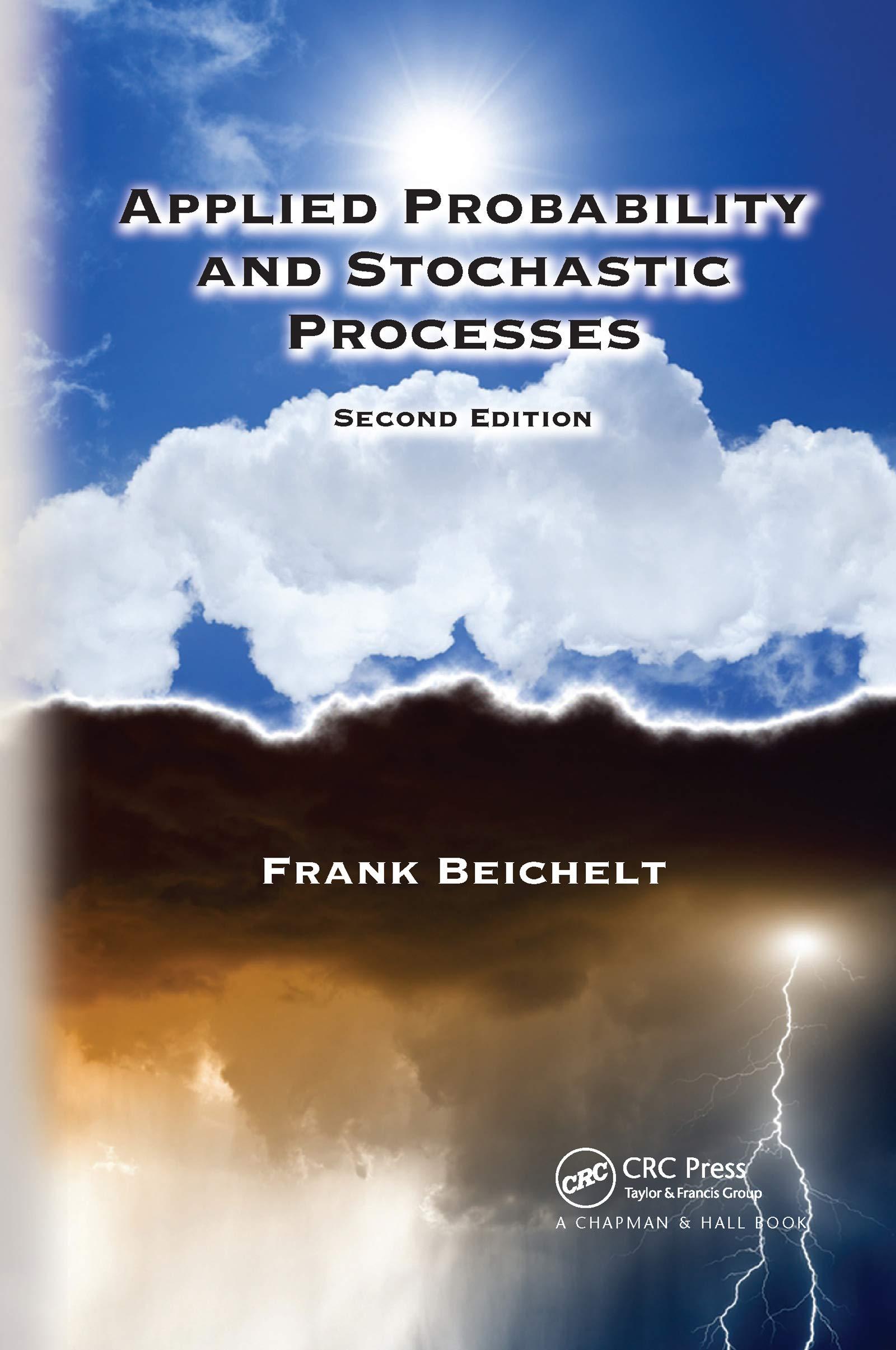The number of physical particles of a particular type in a closed container evolves as follows: There
Question:
The number of physical particles of a particular type in a closed container evolves as follows: There is one particle at time \(t=0\). Its splits into two particles of the same type after an exponential random time \(Y\) with parameter \(\lambda\) (its lifetime). These two particles behave in the same way as the original one, i.e., after random times, which are identically distributed as \(Y\), they split into 2 particles each, and so on. All lifetimes of the particles are assumed to be independent. Let \(X(t)\) denote the number of particles in the container at time \(t\).
Determine the absolute state probabilities \(p_{j}(t)=P(X(t)=j) ; j=1,2, \ldots\), of the stochastic process \(\{X(t), t \geq 0\}\).
Step by Step Answer:

Applied Probability And Stochastic Processes
ISBN: 9780367658496
2nd Edition
Authors: Frank Beichelt





